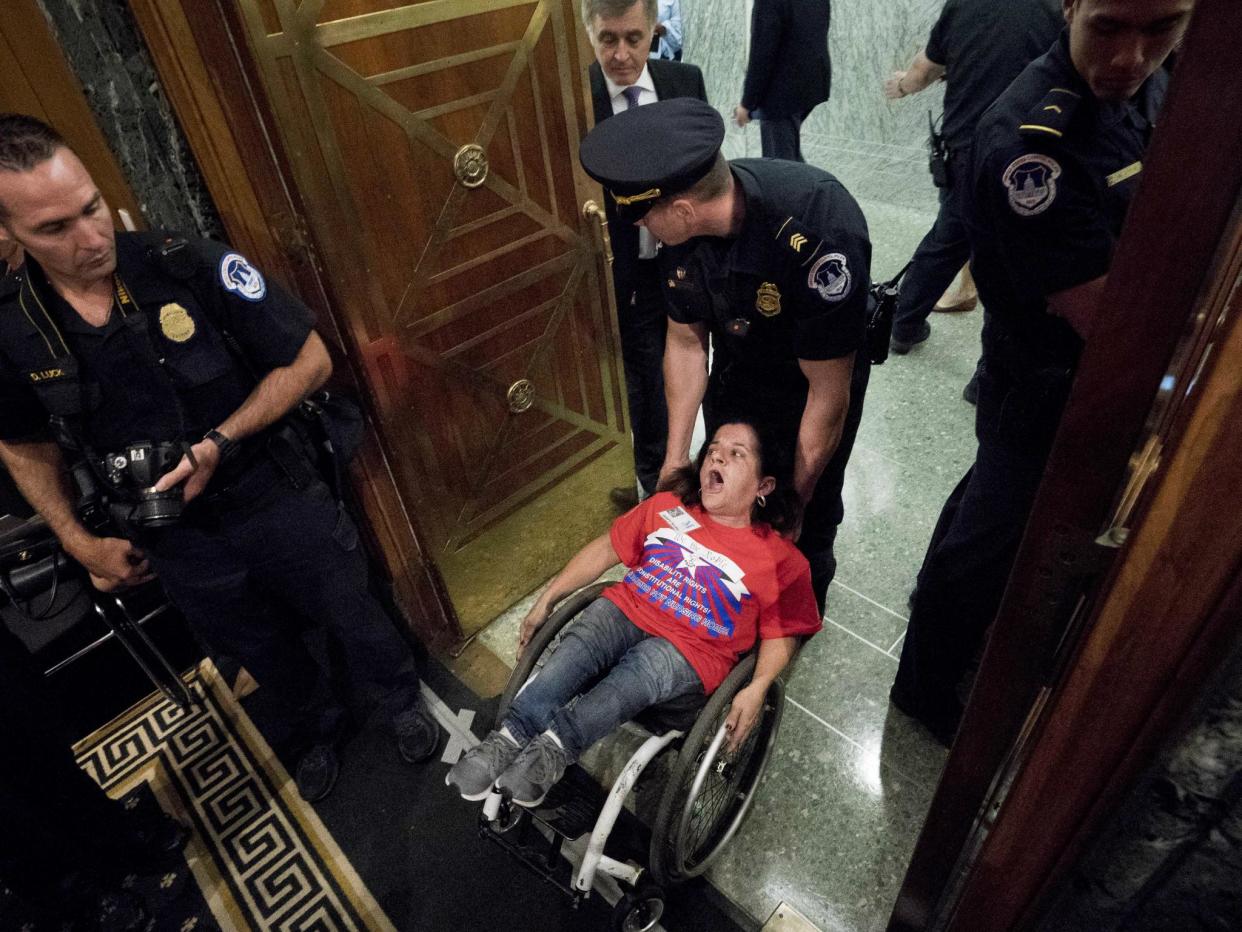Healthcare bill: Disabled protesters dragged out of Senate as Republicans kickstart final Obamacare repeal effort

Republican Senators Lindsay Graham and Bill Cassidy faced protests at the beginning of the debate over their healthcare bill to replace Obamacare.
The Senate Finance Committee held a hearing that turned into an emotionally charged scene as wheelchair-bound and clearly physically disabled protesters were dragged out of the room by Capitol Police.
Chants of "No cuts to Medicaid. Save our liberty” were heard throughout the crowd.
Hundreds of people were lined up outside the room as early as 6am. Bruce Darling, an organiser from New York with the disability rights group ADAPT, told NPR that “for people with disabilities, Medicaid is our life and our liberty.”
Senator Orrin Hatch said: "If the hearing is going to devolve into a sideshow or a forum for simply putting partisan points on the board, there's absolutely no reason for us to be here.”
Majority Leader Mitch McConnell needs at least 51 votes, including Vice President Mike Pence, in order for the replacement bill to pass.
Despite state-specific concessions to woo previous holdouts like Alaska Senator Lisa Murkowski and Maine’s Susan Collins, the bill appears to not have the necessary number of votes from within the Republican majority.
Senators John McCain and Rand Paul announced over the weekend that they would not be voting on the bill, while Ted Cruz had expressed serious reservations over the weekend while in his home state of Texas.
A special rule brought into force earlier in the year to avoid a Democratic filibuster of the healthcare vote expires on 30 September, and ranking Democratic Senator Ron Wyden said the opposition was trying to rush through a vote.
"Nobody has to go buy a lemon just because it's the last car on the lot," he said.
Mr McCain, still undergoing treatment for a brain tumour, said the bill did not follow Senate procedures like waiting for the nonpartisan Congressional Budget Office (CBO) to “score” the impact of the bill on the federal deficit and cost to American taxpayers before holding a vote.
While the CBO is expected to release some information on the fiscal impact of the bill, it has not had time to fully analyse the effect of the proposed bill on the number of Americans left without insurance or how much premiums may increase or decrease as a result.
Arthur Tacchino, a healthcare reform expert for SyncStream Solutions, told The Independent that he expects the partial CBO score “to indicate higher premiums and a lot fewer Americans on healthcare coverage.”
Some Senators felt that the cuts to opioid addiction treatment and schemes like Medicaid that assist low-income and disabled Americans would be too devastating to their constituents.
Others, like Mr Paul and Cruz, felt the replacement bill was too similar to Obamacare.
The bill does however eliminate any federal subsidies for those buying health insurance from the marketplace in plans not sponsored by employers as Obamacare does now.
It also proposes ending the Obamacare expansion of federal help to expand the Medicaid programme to reach more Americans for a longer period of time.

 Yahoo News
Yahoo News 
